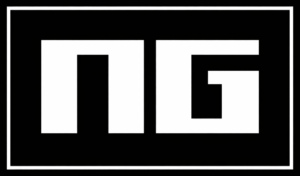Looking for and choosing the right property as your first investment is a hard process and can be very confusing. No worries — that hard process of knowing how to find and buy your first house will be a lot easier after you’ve finished reading this post.
How to Find a House
There’s no easy way to find a house other than to get in touch with the local real estate agent available in your area. A real estate agent can help set you up with the property search around the area you want to buy in.
The other option would be to join a local Facebook group or any other online community related to real estate and real estate investing. These groups often bring together real estate professionals, investors, and contractors, providing an opportunity for networking and finding potential partners for your real estate business. Start to engage and reach out to the members to begin building relationships.
Things to Be Aware of When Buying Your First Rental Property
- Know what you think the property is worth after it’s fixed up: To get this information, you’ll need to run comparable sales through an MLS. You can get this information yourself if you’re a licensed agent, but if not, you can just have a real estate agent look it up for you.
- Buy a property at 75% of the estimated fixed-up value minus its repair cost: So, if the value of the property is $100K fixed up and 75% of that is $75K, you’ll then deduct the total repair cost. Let’s say repairs would cost around $20K — so that would be $75K – $20K = $55K. Buy the property at $55K. This leaves you with $25K in equity. You can then take this property to a bank for a refinance loan if you decide to buy another property.
- Figure out how much the property is going to rent for: We recommend using Zillow to get a reliable estimate. Keep in mind that you’re not going to pocket 100% of the rental payment from your tenant because there are expenses that need to be accounted for.
What Expenses Will You Have to Pay Monthly?
- Insurance
- Vacancy rate
- Property management
- Maintenance
- Mortgage payment
After everything is accounted for, make sure that you’re left with at least $200 in cash flow every month. In some cases, it might be a little more or less than $200 depending on the market.
How Do I Get Approved for a Mortgage Loan to Buy a House?
Here are some of the qualifications required to apply for a mortgage loan:
- You need a job: As much as you may hate it or as much as you may be looking at the passive income of real estate investment so you can avoid a 9-to-5, you still have to have a job. This one is crucial — how are you going to qualify for a loan if you can’t prove to a lender that you can pay them back? Get a job and keep it.
- Develop your credit score: If you don’t have a developed credit score, it’s going to be incredibly difficult to prove to a lender that you’re capable of paying back a loan. Get yourself a credit card and start making smart purchases on it.
- Save for a 3.5% down payment on your FHA loan: Let’s say you found a $100K property. You’d then need to make a 3.5% down payment — that’s $3,500. Once the down payment is made, the loan will be released. Make sure you have money saved up ahead of time. To understand how MIP and PMI work with these loans, check out our separate guide.
Once all financial and employment factors are in order — including a good credit score, stable income, and a sufficient down payment — the next step is to carefully consider your motivation and goals for entering the real estate market. Having a clear understanding of your objectives and the commitment required will help you make better decisions when investing.
Remember, knowledge is power. It’s always worth taking the time to learn. Whether that’s through books, audio, videos, or social media — the BRRRR method is a great strategy to study as you plan your first purchase.


